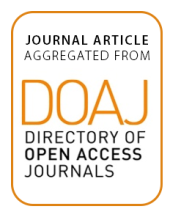Land Library
Welcome to the Land Portal Library. Explore our vast collection of open-access resources (over 74,000) including reports, journal articles, research papers, peer-reviewed publications, legal documents, videos and much more.
/ library resources
Showing items 1 through 9 of 14.Demographic change suggests substantial effects on future societal demands on agricultural landscape use and thus on rural areas.
Predominan en el medio académico y político las nociones "naturalistas" sobre la segregación social del espacio en las ciudades latinoamericanas.
The Conservation Reserve Program (CRP) is a voluntary set-aside program in the United States designed to amelioratesoil erosion, control crop overproduction, enhance water quality, and provide wildlife habitat by replacing crops with other forms of land cover.
Cet article étudie la confrontation des constructions identitaires locales et du tourisme culturel dans le Salento, une région des Pouilles où, depuis une dizaine d’années, des politiques culturelles et un marketing territorial avisés ont relancé le tourisme.
Cities are not socially homogenous, but divided into socially and structurally differentiated sub-units. Likewise, the individuals of a community, city or neighbourhood present specific behavioural patterns and uses with respect to their public green areas.
Este artículo propone algunas reflexiones críticas sobre la tradición creciente de implementación de políticas públicas de regularización de asentamientos informales en áreas urbanas, con el objetivo de contribuir para que el proceso de crecimiento informal de las ciudades latinoamericanas sea en
In this paper, 1) a delineation of main theoretical, methodological and applicative issues of landscape ecology, 2) a comparison between landscape and ecosystem ecology, 3) a critical overview of actual limits of landscape ecology, are depicted.
This paper takes the move from the uncertainty surrounding ecosystem thresholds and addresses the issue of ecosystem-state assessment by means of ecological integrity indicators and ‘ecological risk‘.
In the ten years 1903-1913 Arrigo Serpieri delivered the lessons of rural economy and evaluation in the Technical Superior Institute of Milano, following his teacher Vittorio Niccoli.

